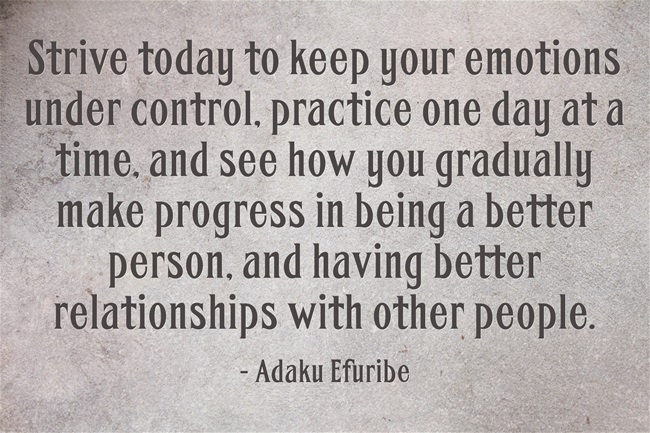
By Adaku Efuribe
‘’By striving to control your thoughts, you resist becoming a slave to your emotions, allowing yourself to live in a way that’s in harmony with your goals and values’’. Justin Bariso
Emotional intelligence can be defined as the capacity to be aware of, control, and express one’s emotions, and to handle interpersonal relationships judiciously and empathetically.
Register for Tekedia Mini-MBA edition 19 (Feb 9 – May 2, 2026): big discounts for early bird.
Tekedia AI in Business Masterclass opens registrations.
Join Tekedia Capital Syndicate and co-invest in great global startups.
Register for Tekedia AI Lab: From Technical Design to Deployment (next edition begins Jan 24 2026).
To survive in today’s world, we need to apply emotional intelligence in all aspects of relationships, be it family, place of work, social or religious gatherings.
I have come to the conclusion that human behaviour has a lot to do with upbringing, genetic influence, community influence and emotional intelligence.
Emotional intelligence is different from academic excellence, no matter the number of degrees we have like a thermometer or how exposed we think we are, our emotions have a great role to play in our relationships with people and how successful we become.
Some adults, although having grown in age, still have the emotion of a four year old, and would play tantrums if they don’t get what they want at a particular time. When you have a different opinion to theirs on any matter whatsoever, they see it as an insult and will become aggressive, controlling and sometimes violent.
Being hot tempered is not an excuse for aggressive behaviours or violence under the law,
Adults with poor emotional intelligence always seem to allow their emotions run out of control, a good example is the anger emotion; people control their angers in different ways.
People that lash out on others and hit their hands on tables or walls, break objects deem to have very poor emotional intelligence and are insecure so they treat other people badly and blame them for their response.
No one is perfect, but I believe if we consciously understand our emotions, and learn how to keep them in check, we may be able to live happy healthier lives.
Strive today to keep your emotions under control, practice one day at a time, and see how you gradually make progress in being a better person, and having better relationships with other people.
Most of all, a healthy emotion leads to a happier fulfilled life.
I would like to share Justin Bariso’s interpretation of emotional intelligence and how it appears in the real world. (13 points to apply).Justin intelligently describes the 13 things emotionally intelligent people do in his article published in INC newsletter. Those elements are:
- You think about feelings.
- You pause.
- You strive to control your thoughts.
- You benefit from criticism.
- You show authenticity.
- You demonstrate empathy.
- You praise others.
- You give helpful feedback.
- You apologize.
- You forgive and forget.
- You keep your commitments.
- You help others.
- You protect yourself from emotional sabotage.
Clicking the piece, you can read more on how to apply these elements.



